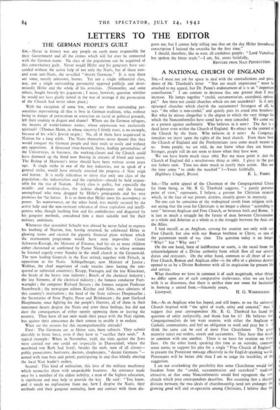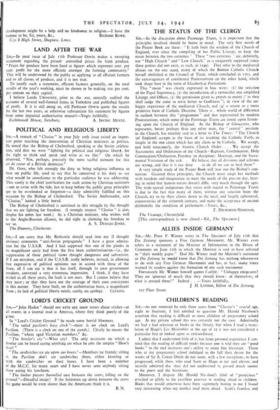SIR,—As an Anglican who has hoped, and still hopes, to
see the universal Church inspired with " the spirit of truth, unity and concord," may I suggest that your correspondent Mr. B. G. Theobald has faced the question of unity realistically, and thank him for it? He believes that Congregationalists do not want reunion with either the Anglican or Catholic communions, and feel no obligation to work and pray for it. I think the same can be said of most Free Churchmen The great majority reject our orders, creeds and sacraments. They have that much in common with one another. There is no basis for reunion on these lines. On the other hand, speaking this time as an outsider, common sense seems to support his plea for a single " Free Church of England" to present the Protestant message effectively to the English-speaking world. Protestants will be better able than I am to judge the feasibility of the suggestion. I am not overlooking the possibility that some Churchmen would find freedom from the " credal, sacramentarian and sacerdotal " tractiOO1 attractive, or that some Nonconformists would find repugnant the new church which your correspondent describes. But assuming that a sharper division between the two ideals of churchmanship need not endanger the growing good will and co-operation among Christians, I believe that the
development might be a help and no hindrance to religion.—I have the honour to be, Sir, yours, &c., RICHARD ROWE. C/o 8 High Street, Skegness. Lincs.



























 Previous page
Previous page